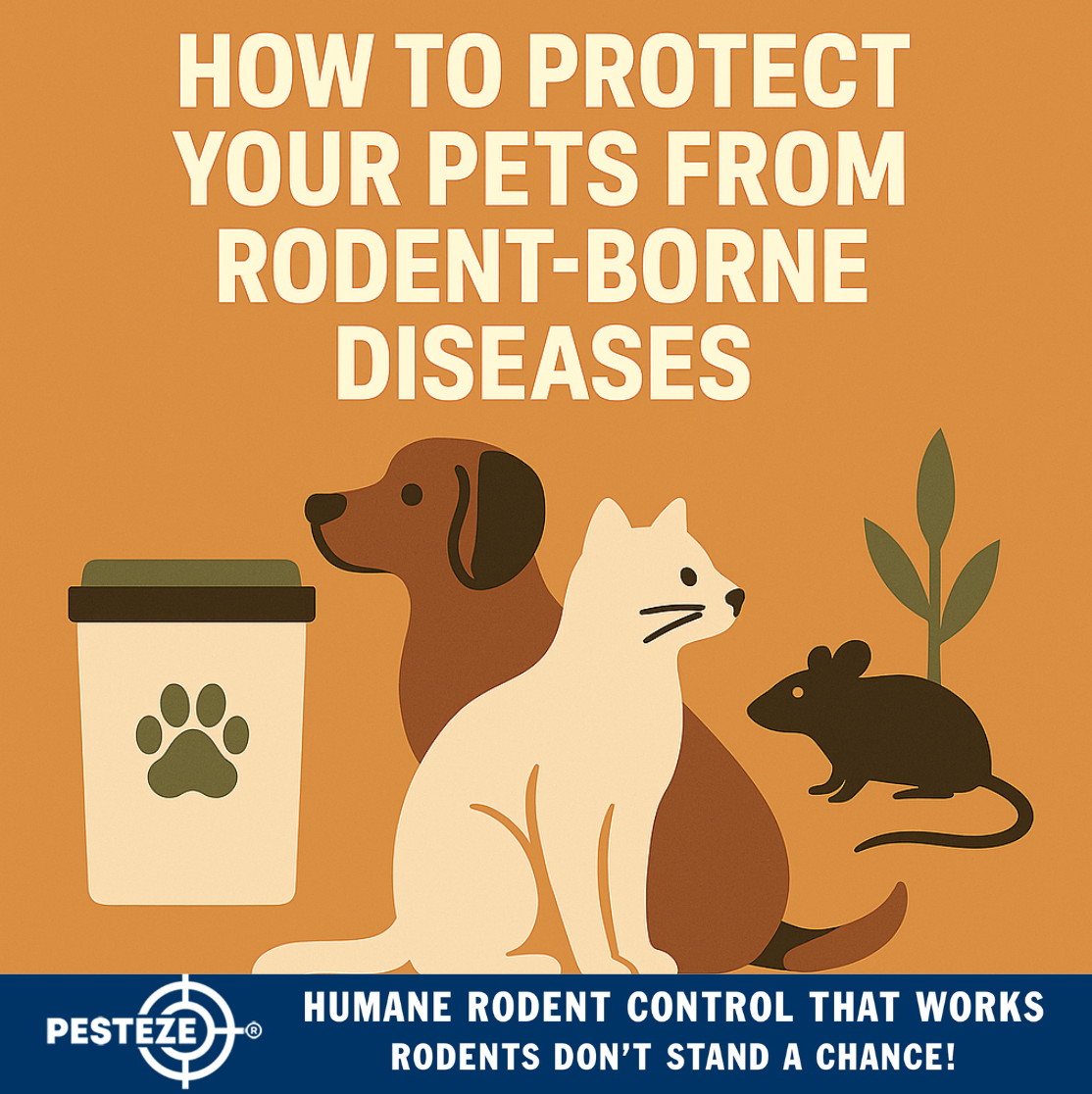HOW TO PROTECT YOUR PETS FROM RODENT-BORNE DISEAS

HOW TO PROTECT YOUR PETS FROM RODENT-BORNE DISEAS
SUMMARY
Rodents carry dangerous diseases that can spread to pets. This guide explains how to keep your pets safe from infections linked to rodents.
FEATURES
-
Rodent Control: Prevent infestations in and around the home.
-
Safe Food Storage: Keep pet food sealed and elevated.
-
Clean Environments: Sanitize bowls, bedding, and litter areas.
-
Vaccinations & Vet Care: Stay current on preventive treatments.
-
Avoid Outdoor Contact: Limit access to rodent-prone areas.
-
Monitor Pet Health: Watch for symptoms of infection.
DESCRIPTION
Rodents are known carriers of diseases that can easily be transmitted to pets, putting their health at serious risk. Protecting your pets starts with controlling rodent populations around your home. By sealing entry points, setting traps, and maintaining a clean environment, you reduce the chances of pets encountering infected rodents.
Food storage is another critical factor. Rodents are attracted to open bags of pet food, which they can contaminate with droppings or urine. Storing food in airtight containers and keeping it elevated off the floor prevents access and protects your pets from exposure. Cleanliness is equally important. Regularly wash food and water bowls, clean pet bedding, and maintain litter areas to remove traces of rodent contamination.
Veterinary care adds an extra layer of protection. Keeping up with vaccinations and preventive treatments helps guard pets against rodent-borne illnesses. Additionally, routine checkups ensure early detection if your pet is exposed.
Outdoor activity should be monitored carefully. Rodents are common in gardens, sheds, and wooded areas, so keeping pets away from these zones lowers the risk of contact. If pets do spend time outdoors, check their surroundings for droppings or signs of rodents. Finally, monitor your pet’s health closely. Symptoms such as lethargy, loss of appetite, vomiting, or unusual behavior could signal exposure to rodent-borne diseases and should be addressed by a veterinarian immediately.
By combining rodent control, proper food storage, sanitation, vet care, outdoor safety, and health monitoring, you can protect your pets from serious illnesses spread by rodents.
- Saharsh Bansal


Comments 0